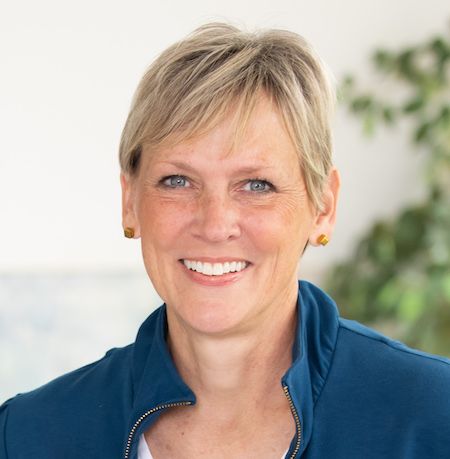The Slowness of God's Sovereignty
Mar 8
/
Darcy Hansen

“I lost my wallet. I prayed and the wallet was returned to me in a miraculous way.”
“God protected me when I was in a car accident.”
“God provided needed finances so I didn’t have to take on any debt.”
These are some of the responses I heard for the question “When have you experienced the sovereignty of God?”
The question and the subsequent responses have been tumbling in my mind for a few weeks. I didn’t give an answer in the conversation, as all the answers shared were in the positive. Meaning the outcome of their prayers were favorable and almost instantaneous for their requests.
So, I’ve been wondering, what is God’s sovereignty? And when do we really experience it?
Sovereignty means rule, dominion, authority, control, or dominance. When I think of the sovereignty of God, I imagine creation coming into being, or the flood which Noah and his family survived. I recollect the birth of Moses and the deliverance of the Israelites from Pharaoh. I think of Jesus incarnate, dead, and resurrected. Sovereignty is revealed in miracles of provision and wrath, where the big and all-powerful workings of God reveal God can and will do whatever God wants to do, when God wants to do it.
God’s sovereignty is often treated like a prayer vending machine that simply drops down favorable items so we can go about life in the way we see fit. But when the button we push on the prayer vending machine doesn’t drop down the item we want, or worse, the item we want gets hung up on the little hook and won’t drop at all, even with a firm shake and a swift kick of the machine it leads us to question if God's sovereignty is at work. Thus, fewer negative experiences are shared in the context of God's sovereignty.
There’s an unpredictability, a perceived capriciousness, to God that makes many people very uncomfortable, frustrated, and even angry. When we praise favorably answered prayers before less favorably answered prayers or unanswered prayers our theology and our image of God can feel like it is on shaky ground.
I wonder if those miraculous, acute displays are actually blips on God’s sovereignty spectrum? In my observation, God’s sovereignty unfolds ever so slowly, and is often interwoven with human free-will. For it is human ingenuity displayed in innovative technology that protects us in an accident. It is the thoughtful kindness of a stranger who returns a wallet or gives toward a financial hardship. It is the medical team that helps heal a patient from COVID or the scientists who develop a vaccine. These are all human actions. When God’s sovereignty conforms to our expectations, we love to sing God’s praises for medical and technological advances and the answers to prayer.
And what of the opposite? When a child dies despite countless community prayers. The elderly who wither away slowly in their home or a care facility. A loved one consumed by cancer, Parkinson’s disease, or Alzheimer’s. The teen who dies in a car accident or by suicide. The family that can’t seem to make ends meet no matter how hard they try. The marriage that disintegrates after years of prayers for redemption. Few find God’s sovereignty comforting in such times.
Then what is it, really?
My idea is that God’s sovereignty is more a slow arc of grace than a quick shot of answered prayer. It is the labored prayers over decades of Noah constructing the ark, God’s people crying out for deliverance for centuries, and the coming of the promised Savior after waiting for millenia. This by no means negates God’s sovereignty in instantaneously answered prayers, but it’s to say most of our lives are spent in the long-sustained posture of prayer and expectancy for the lost, sick, hungry, homeless, and broken. Oftentimes those prayers are answered in part, if at all. And yet somehow, in some way, God is still sovereign.
As a spiritual director, I sit in the tension of God’s sovereignty each time I meet with a directee. Whether spoken or not, the questions of wonder, curiosity, anger, and frustration lie just below the surface of the safe questions.
I recently heard the term “somatic leaching,” which means over time the common definition of a word shifts and changes depending on context. It seems that “somatic leaching” has happened in regard to understanding God’s sovereignty. In a culture terrified of death, failure, and loss, we’ve shifted so hard toward the positive aspects of God’s sovereignty that countless people are left frustrated and in pain in the dust of our “somatic leaching.”
I don’t profess to know the mind of God, nor do I have all the answers to life’s big questions. But when I’m hesitant to share how I’ve experienced God’s sovereignty through the negatives of my life more than the positives, it makes me think something is amiss in our view, our image, our understanding of God. It makes me wonder if maybe, just maybe, asking different questions will compel us to shift our perspective. Maybe more people would be able to see the arc of God’s slow, meandering way of sovereign grace more clearly?

Darcy Hansen
Darcy is a wonderer and a wanderer who is learning to breathe, listen, and abide within the liminal spaces of life. She holds a Master of Divinity (concentration in Spiritual Direction) and spiritual direction certification from Portland Seminary. She is currently working on her Doctor of Ministry in Leadership and Global Perspectives, at Portland Seminary. Her research focuses on discovering ways to more fully embrace our humanity, so we are better equipped to care for the dying, dead, and grieving in our communities. As a spiritual director, Darcy walks alongside others through the holy and hard of life, seeking the Divine along the way. To learn more, see www.darcylhansen.com.
Darcy is a wonderer and a wanderer who is learning to breathe, listen, and abide within the liminal spaces of life. She holds a Master of Divinity (concentration in Spiritual Direction) and spiritual direction certification from Portland Seminary. She is currently working on her Doctor of Ministry in Leadership and Global Perspectives, at Portland Seminary. Her research focuses on discovering ways to more fully embrace our humanity, so we are better equipped to care for the dying, dead, and grieving in our communities. As a spiritual director, Darcy walks alongside others through the holy and hard of life, seeking the Divine along the way. To learn more, see www.darcylhansen.com.
https://www.darcylhansen.com

